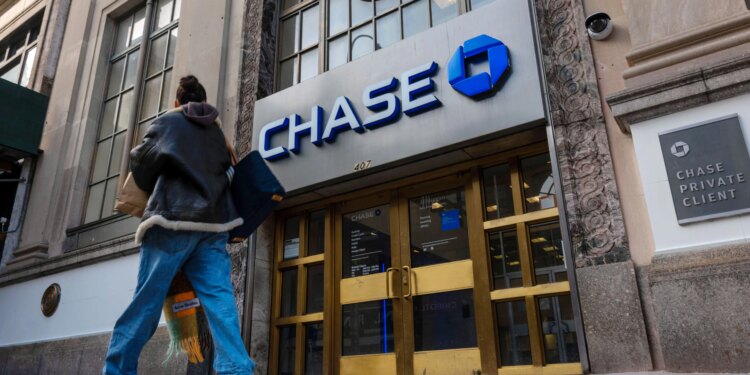At least four people who allegedly made off with tens of thousands of dollars from the Chase “infinite money” glitch are now in heaps of trouble — specifically, being sued in federal court by attorneys for the largest, most powerful bank in the U.S.
The “money glitch” went viral on social media last month thanks to videos guiding viewers to cash fake checks to themselves and pull out the money before the bank could confirm it wasn’t real. As Money wrote at the time, participants in the “glitch” were at risk of criminal fraud charges.
Now, four complaints filed Monday in three federal district courts aim to recover stolen funds from alleged fraudsters.
The lawsuits claim that people visited ATM locations in late August and deposited fraudulent checks to the four defendants’ accounts ranging in amounts from $56,840 to $335,000.
In one of the complaints, a Florida resident is accused of making a fraudulent deposit into one of his accounts. Chase says he now owes the bank over $141,000. The individual’s Miami-based music company, of which he’s the sole member, was named as the defendant in the suit. An Instagram page for his hip-hop/reggaeton music project has several explicit videos posted in September in which the music artist appears to be holding huge wads of cash. Efforts to reach him were unsuccessful.
In another case in which a Texas resident is the defendant, the person who deposited the fake check is described only as a “masked man.” But the defendant is accused of withdrawing or transferring over $320,000 of stolen funds.
In the other two cases, in which a California man and a limited liability company belonging to a person from Florida are named, the complaints do not provide details about who deposited the fake checks. But both defendants are accused of transferring out large sums resulting in negative balances of over $90,000.
Money was unable to reach any of the defendants for comment.
The statements of facts in the four lawsuits are basically the same: They claim the defendants cashed fake checks for huge sums of money and then quickly transferred, wired or withdrew most or all of the funds before the checks were rejected as counterfeit.
The lawsuits note that federal district court is the appropriate jurisdiction because the amounts in question exceed $75,000, which is a cutoff point. It’s unclear how many other cases, if any, have been filed in different courts.
“Fraud is a crime that impacts everyone and undermines trust in the banking system,” Chase spokesperson Drew Pusateri said in an email Tuesday. “We’re pursuing these cases and actively cooperating with law enforcement to make sure if someone is committing fraud against Chase and its customers, they’re held accountable.”
With the lawsuits, Chase is trying to reclaim the overdrawn funds, plus interest and fees, and hold the fraudsters accountable. The bank says it has already demanded the money back from the defendants without success.
More from Money:
Best Banks in America for 2023-2024
Chase Customers Who Tried TikTok ‘Money Glitch’ Could Face Fraud Charges
Elon Musk and Donald Trump Have Been Giving Voters Money. Is That Legal?








